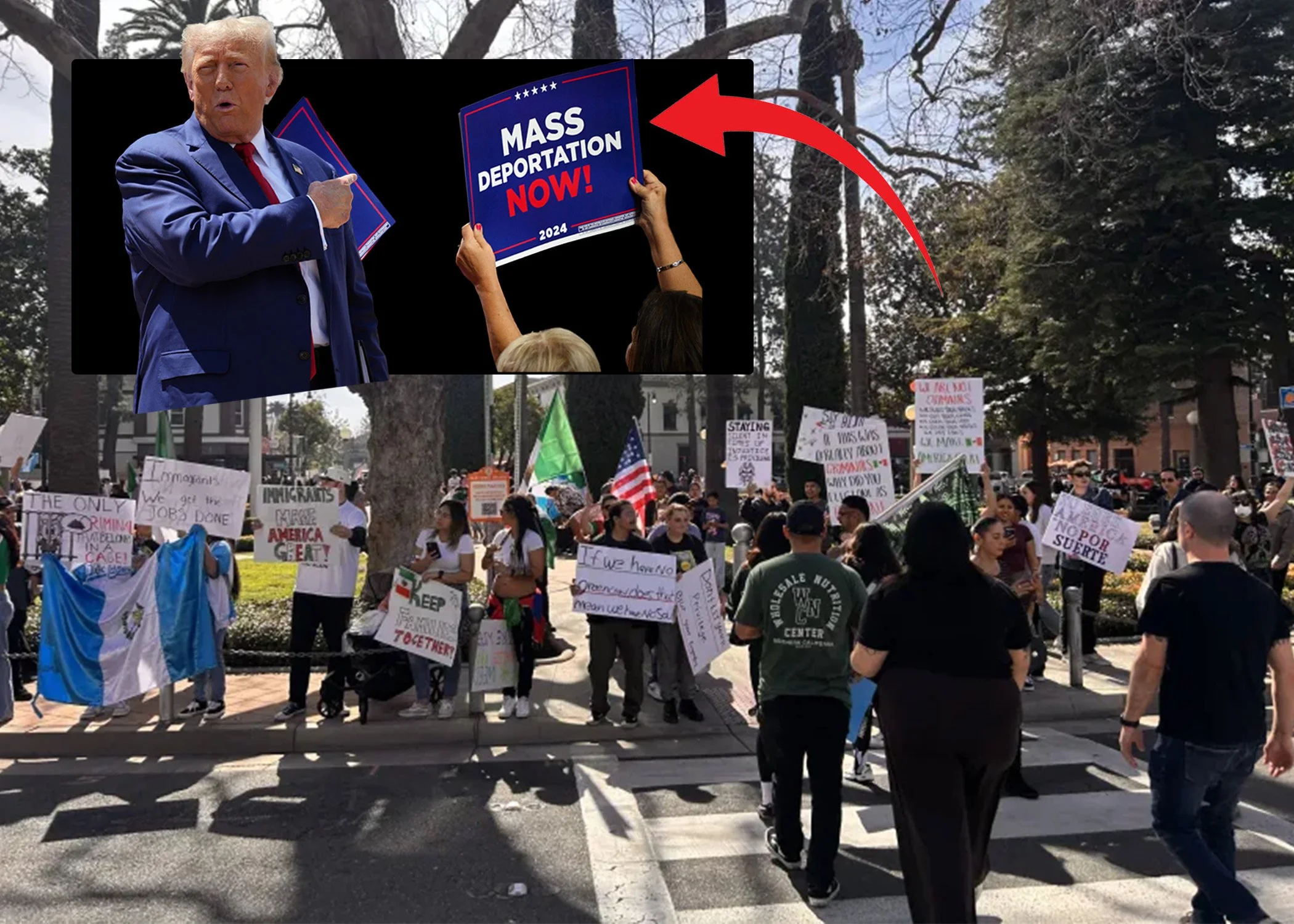Protests against mass deportation emerge near Chapman
Photo Collage by Samantha Rosinski, Staff Photographer
A mass of locals, including Chapman students, gathered in the Orange Circle on Sunday, Feb. 9 to protest against President Donald Trump’s plans for mass deportation. This comes as Immigration and Customs Enforcement (ICE) began mass raids and arrests in late January.
This protest is one of many that have commenced across the country following Trump’s Jan. 20 declaration of a national emergency at the southern border. This prompted a rapid increase in ICE raids and arrests and the reopening of checkpoints along major highways.
For many Latinx or Latin American students, this demonstration allowed them to make their voices heard on a topic that hit close to home.
“I found it very personal for me, just because I see it happening in my hometown,” said senior Isa Alacron, a political science and sociology double major. “I get very worried for those who could possibly get taken, my family considered.”
Alacron first learned about the protest on TikTok and shared it with her friends, asking them to join her. Coming from a family that immigrated from Chile and Mexico, she grew up well aware of the stigma surrounding migrants and saw the protest as an opportunity to speak out.
“It takes a lot of courage to stand up for something, and I think it’s very important because it proves that someone is doing something about it,” Alacron said.
The demonstration first gathered on Chapman Avenue and Tustin Street around 10 a.m. and spread to the Orange Circle a few hours later.
Participants spanned various ages and ethnicities, nearly all holding homemade signs and flags from various countries, including the United States. The march received support from drivers, who honked their horns in solidarity, and from pedestrians walking by and waving or joining the chants.
Sophomore English and education double major Alexa Arostico was aware of the protest, but was unable to attend. Still, she hopes that this demonstration helps to amplify awareness about the immigration system.
“While I couldn’t attend, I recognize the privilege of using my voice in spaces that my mother and many others were denied access to,” Arostico said. “It is my responsibility to advocate for policies rooted in justice and compassion.”
Although there was community support, there was also pushback from others who shouted racial slurs and comments, with some drivers yelling, “Go, Trump!” as they passed, according to Alacron. Local authorities were present, but no actions were taken.
Peace and justice studies and political science professor Arthur Blaser believes that protests and counter protests are an essential part of democracy, stating that at their best, they can call attention to problems and encourage new ways of thinking.
“Protests are essential, now more than ever, particularly for people underrepresented or excluded from conventional politics,” said Blaser. “People at both sides of the lifespan, very young and very old, are protesting more.”
Blaser encourages students to continue to educate themselves on the historical success and limitations of civil discourse and to recognize the expertise that comes from lived experiences.

